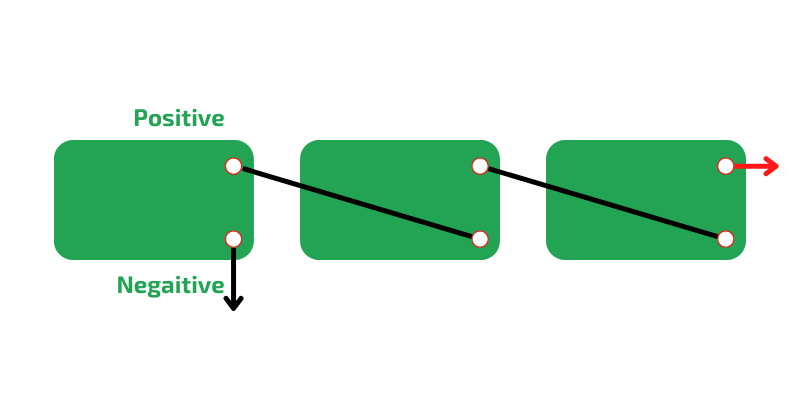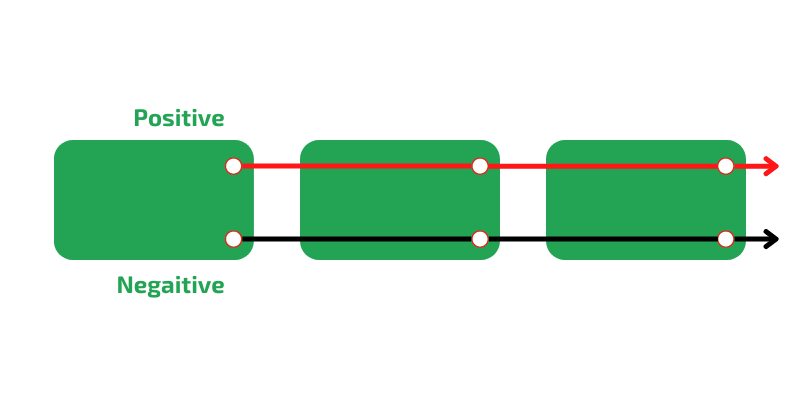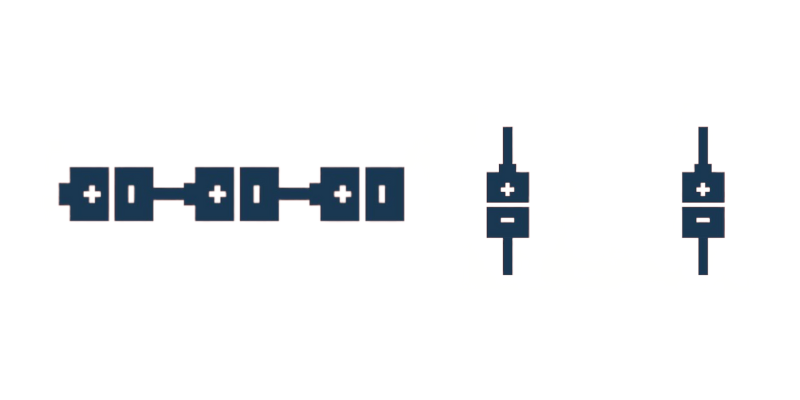Recomandări cheie:
- Conectați bateriile în serie pentru a crește tensiunea, păstrând capacitatea constantă.
- Utilizați paralel pentru o capacitate mai mare, menținând aceeași tensiune.
- Seria-paralel le combină pe ambele, crescând atât tensiunea, cât și capacitatea.
- Asigurați-vă că bateriile sunt compatibile pentru conexiuni în serie/paralel.
- Încărcarea în serie necesită o gestionare atentă pentru a preveni dezechilibrul.
Conectarea corectă a bateriilor este crucială pentru optimizarea puterii de ieșire și a fiabilității în toate aplicațiile. Înțelegerea configurațiilor serie, paralelă și serie-paralelă este esențială.
În această postare, vom explora metodele de conectare a bateriei, oferind cunoștințele necesare pentru a lua decizii informate și a realiza o gestionare optimă a energiei. Să ne scufundăm!
Conectarea bateriilor în serie
Când o baterie este conectată la alta în serie, tensiunea combinată crește în timp ce capacitatea rămâne separată. De exemplu, 3*baterii 12V12Ah (conectat în serie) va avea o tensiune a bateriei de 36Volți și o capacitate a bateriei de 12Ah.
Pentru a lega bateriile în serie, fiecare baterie trebuie să aibă aceeași tensiune și capacitate ca și cealaltă. De exemplu, puteți conecta două baterii de 12V20Ah în serie, dar nu puteți conecta o baterie de 6V20Ah la o baterie de 12V20Ah.
Pentru a conecta o serie de baterii, legați terminalul negativ al unei baterii la terminalul pozitiv al altuia și repetați până când toate bateriile sunt conectate. Pentru a utiliza o baterie ca sursă de alimentare, ați conecta o legătură/cablu la terminalul negativ al primei baterii din șirul de baterii la aplicația dvs., apoi o altă legătură/cablu la terminalul pozitiv al ultimei baterii din șirul dvs. Aplicația dvs.
Încărcarea bateriilor în serie necesită cunoștințe despre creșterea tensiunii bateriei. Vă recomandăm să încărcați fiecare baterie individual, dacă este posibil, deoarece încărcarea tuturor împreună ar putea ajunge la una sau mai multe dintre baterii care sunt în afara echilibru. Sau aveți nevoie de un BM -uri inteligente pentru a -l controla.

Conectarea bateriilor în paralel
Conectarea în paralel este atunci când conectați două sau mai multe baterii împreună pentru a crește capacitatea amperi-oră, dar tensiunea va rămâne aceeași. De exemplu, conectarea a patru baterii 24V24Ah creează un sistem cu o capacitate de 24V96Ah.
Când conectați bateriile în paralel, borna negativă a unei baterii este conectată la borna negativă a următoarei și așa mai departe. Bornele pozitive sunt de asemenea conectate între ele.
Configurarea bateriei în paralel a fost de multă vreme o alegere de preferat atunci când vine vorba de maximizarea duratei de viață a bateriilor și de a se asigura că pot alimenta echipamentele mai mult timp. Dar, pe de altă parte, pentru că pot conține o capacitate mai mare amperi-oră, le poate lua mai mult decât bateriile conectate în serie pentru încărcare.

Baterii conectate în serie-paralel
În cele din urmă, este de asemenea important să menționăm conexiunile bateriei serie-paralelă. Un aranjament serie-paralel folosește două sau mai multe șiruri de baterii pentru a crește atât tensiunea, cât și capacitatea în același timp.
De exemplu, dacă conectați șase baterii de 12V20Ah împreună, puteți construi o baterie de 24V60Ah. Acest lucru se face prin utilizarea configurației 2S3P.
Dacă aveți nevoie de ajutor cu configurarea bateriilor, vă rugăm contactați specialiștii noștri în baterii.
Serie vs. Răspunsuri rapide în paralel
Conectarea bateriilor în paralel crește amperi-ore?
Da, conectarea bateriilor în paralel crește orele de amperi. Aceasta înseamnă că bateriile vor dura mai mult. De exemplu, dacă conectați două baterii 12AH 12AH în Parrallel, veți avea în continuare un sistem de 12V, dar dublați amperiile.
Ce se întâmplă când puneți două baterii de 12 volți în serie?
Când puneți două baterii de 12 volți în serie, primiți mai multe volți. Devine un sistem de 24 de volți, dar amperiile rămân la fel.
Care este mai bine, în serie sau paralel?
Dacă doriți mai multă putere, mergeți paralel. Dacă doriți o tensiune mai mare, GO Series.
Puteți pune bateriile LifePo4 în serie?
Atenție totuși, nu toate bateriile pot fi conectate în serie. Unele, ca multe baterii Lifepo4, se pot deteriora. Dar bateriile ionice cu litiu sunt de obicei sigure pentru conexiunile în serie. Confirmați-l întotdeauna cu dvs producator de baterii.
Care este mai sigur, în serie sau în paralel?
Din punct de vedere al siguranței, atât conexiunile în serie, cât și cele paralele sunt aceleași. Important este tensiunea de alimentare. Deci, nu vă faceți griji cu privire la siguranță atâta timp cât tensiunea este corectă.


